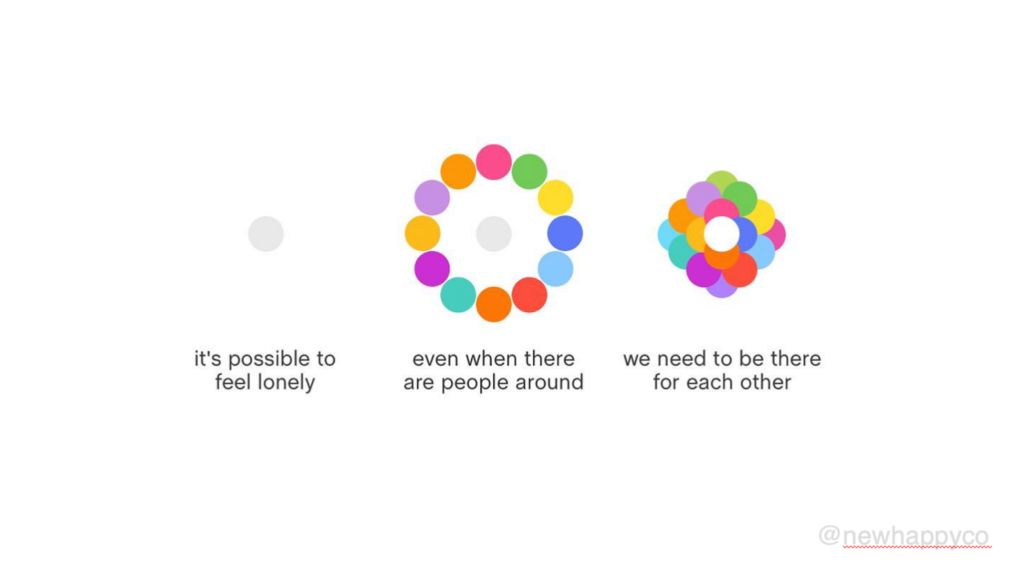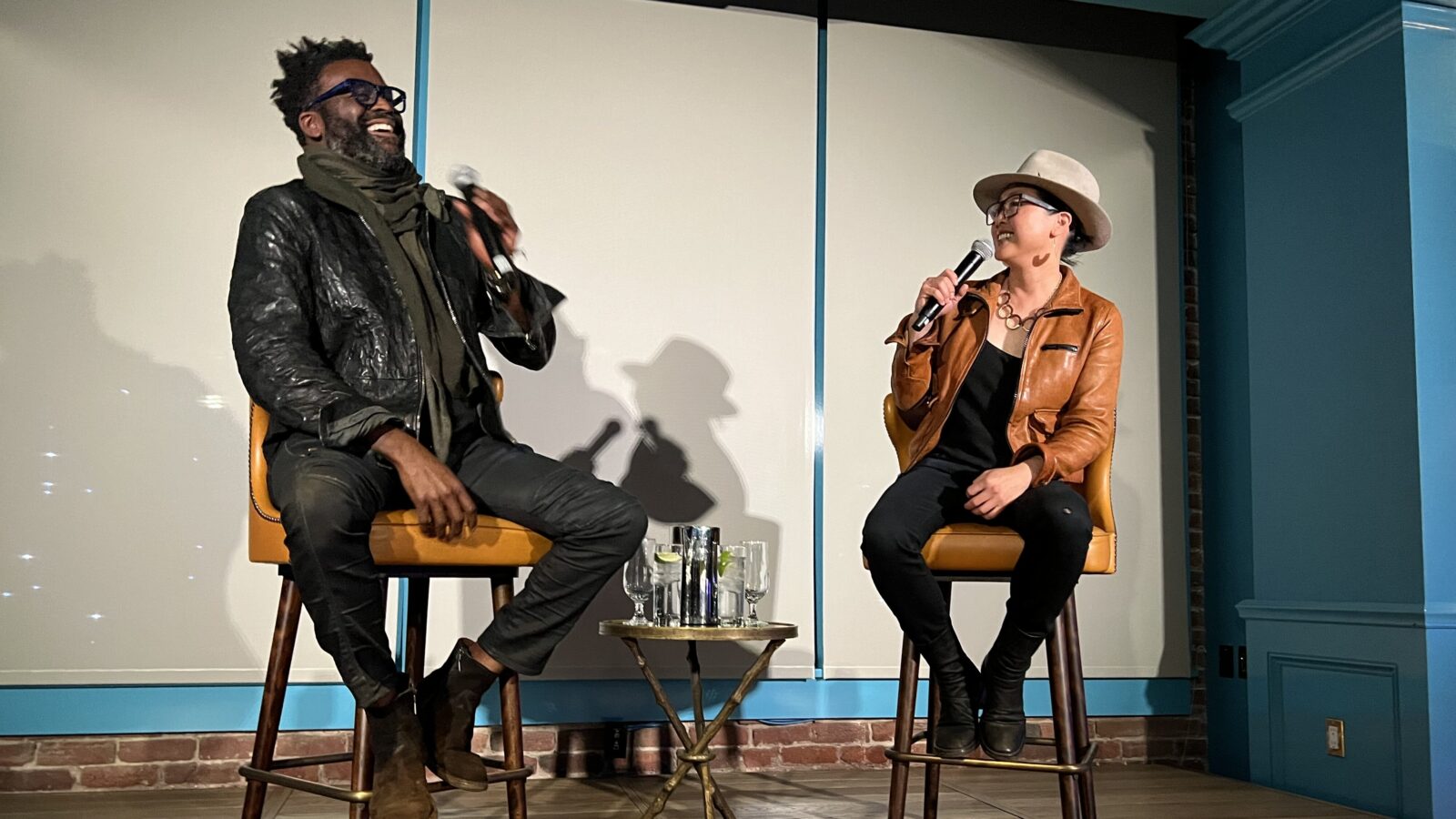Everyone, to some extent, wants to belong. I don’t necessarily mean to conform or be the same as the rest of your tribe, I mean that we all want to feel a part of a group, feel like someone has our back, and have a space where we can be ourselves without hesitation. Belonging is a natural craving, even though sometimes we resist it because of our personalities (hello, introverts!) or our circumstances (hello, quarantine!). We need belonging as a backbone to experiment with our growth and what’s beyond happiness, which is why the second condition of a greenhouse mindset is a sense of belonging.
Belonging is about depth, not breadth
If I asked you how to create or nurture more belonging in your life, the answer might be to join a club, send someone a “just saying hi” text, or sit at a bar for a while and see what happens. These aren’t exactly wrong answers, but what we’re talking about here goes deeper than having a fuller social life. It’s less about acquaintances and more about deep connections. It’s cultivating meaningful relationships based on authenticity and diving into truthful and transparent conversations while respecting boundaries.
For me, real belonging was something I discovered in college. Wearing the nerd hat of “most likely to succeed” in high school was one aspect of my shyness, having brothers that were popular athletes and prom kings rubbed it in even more. I felt squirmy in my own skin until I got to Cal (UC Berkeley). Campus was a new frontier because I wasn’t the only ‘smart Asian’ anymore, I was surrounded by smarter brainiacs that looked like me and didn’t need an explanation of why beef tongue whets my appetite or why it’s normal to be grounded for anything other than an ‘A’ on a report card.
As silly as it sounds, a turning point for me was when I found out I was known to be “the visor girl” on campus. I was too lazy to fix my hair so I’d wear this cheap janky plastic visor every day to school. But the fact I got identified amongst the sea of students made me feel I could fit in and stand out at the same time…by being me.
Like any coming-of-age story, I grew into my skin while away from my family and had the freedom to make my own mistakes and my own successes. I tried things I always wanted to do but was never allowed to — I got a “dream job” at a grungy anti-establishment cafe called Wall Berlin. I worked at a grimy used record/CD (remember those?) shop and I’ll never forget someone asking me, “What’s a nice girl like you working at a place like this?”
To me, that just justified I was exactly where I was supposed to be. With all these funky places, I met cool, interesting people that made me realize, no matter how many nose rings or tattoos one can have, we’re the same person underneath. I leaned into people that felt authentic. It was feeding an honest need for community — not just because it felt nice but because surrounding myself with real people reminded me I could be real too.
Communal belonging at work matters too
As much as companies might want to automate work or rationalize humans as worker drones, leaning into our humanity has become a prime opportunity. And by either stifling belonging or encouraging it, companies are feeling the effects of their approach through calls for DEIB (diversity, equity, inclusion, belonging), social activism, and sustainability. When research shows that people are three and a half times more likely to perform at their fullest potential when they feel a sense of belonging at work, more companies should want to tap into that.
We’ve seen tremendous shifts in the DEIB conversation, especially in 2020 when 50 of the biggest public companies collectively dedicated $50 billion towards racial inequality. Other organizations followed suit by increasing budgets to make way for teams and leaders in the DEI space and to put more money towards initiatives. Yet after that big push in 2020, more people are understanding that you can’t get results just by giving people presence and space…that’s where the “B” for belonging comes in.
It’s still possible to feel lonely even when we’re surrounded by people. In every town or city, there are people who feel alone and people who feel like they belong. It’s the same case for companies. At work, to have an organization be cohesive rather than divisive, people need to feel a sense of belonging is prioritized in the workplace culture.

Here are 4 ideas to gauge and increase belonging at work
As with all big concepts, it’s so important to define what we actually mean by DEIB and how belonging fits. I like breaking it down into things we can all relate to. Diversity is being invited to the dance. Inclusion is being asked to dance on the floor. Equity is having your turn at being the DJ. Belonging is being able to dance however the heck you want. Whether your team is remote or in-person, you can experiment with these 4 ideas to test and observe how deep a sense of belonging runs for your employees.
- At your next team bonding activity, start by pairing people together to ask each other a few meaningful, but easy ice-breaker questions. Some ideas for questions:
- How can you tell when you’re feeling anxious? What helps you get out of it?
- When you’re upset, how can other people tell, and how can they help?
- What do you prioritize outside of work? What do you wish you could do more of and why?
- Since we’re almost done with the first half of the year, each person has likely already gone through some form of highs and lows in their life. At your Q2 wrap-up, go around and ask them to share (if they’re comfortable). Remind them it doesn’t have to be about work.
- At the beginning of your 1:1s ask each person earnestly, “So really, how are you?” It’s easy to breeze through a 1:1 and only talk about project and work updates. Yet as a manager, you may only get to do 1:1s on a semi-weekly or monthly basis. A lot can happen to a person in that time, so asking them how they really are can go a long way.
- Try doing the Wheel of Wholeness exercise (pg. 13) in this free playbook with a small group of people that are curious about knowing each other beyond titles and tasks. The exercise will encourage participants to see each other as whole beings, not just the bits of ‘person’ they know from work.
Try out these ideas and feel free to tailor them to your team. I’d love to know what conversations came about from these and what stories you have about belonging at work – so reach me on Linkedin to let me know! For more ideas, you can also sign up for my newsletter here. Talk soon 🙂


